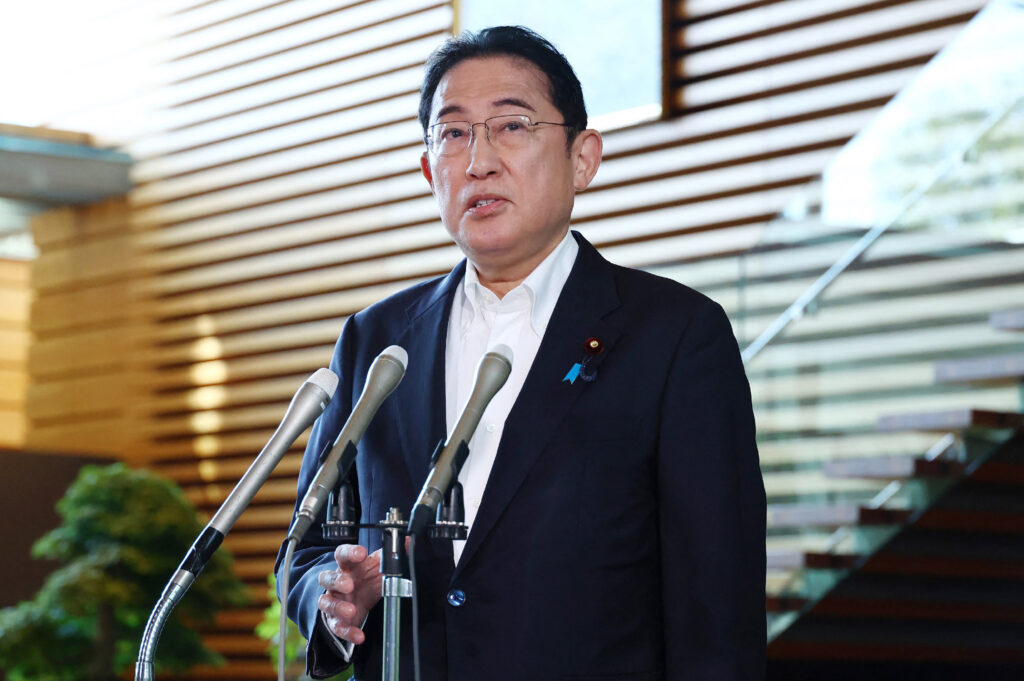
- ARAB NEWS
- 01 Aug 2025

TOKYO: There are concerns within the Japanese government and the ruling Liberal Democratic Party that Prime Minister KISHIDA Fumio’s decision to cancel a visit to Central Asia could stall Japan’s diplomacy with the region.
Kishida was scheduled to visit Kazakhstan and Uzbekistan, as well as Mongolia, for four days from Friday. But he announced the cancellation of the trip on the day after the Japan Meteorological Agency on Thursday issued emergency information on the increased risk of a huge Nankai Trough earthquake.
While many within the government and the LDP say the decision was understandable as the prime minister prioritized responding to the higher quake risk, some regret that Japan missed an important opportunity to increase its presence in Central Asia, the backyard of China and Russia.
“We will make timely arrangements for my visits to the countries I was scheduled to visit,” Kishida told reporters at the prime minister’s office on Friday night. “There is absolutely no change in my intention to vigorously promote ties (with the countries),” he added.
Russia has historical ties with the Central Asian nations of Kazakhstan, Uzbekistan, Kyrgyzstan, Tajikistan and Turkmenistan, while China has been increasing its influence in the region in recent years through its Belt and Road initiative.
Four of the five, excluding Turkmenistan, are members of the Shanghai Cooperation Organization, a framework led by China and Russia.
Kishida aimed to drive a wedge between the five Central Asian nations and China and Russia by holding the first summit between Japan and the Central Asian nations, in Kazakhstan, to mark the 20th anniversary of the establishment of a dialogue framework between the two sides, and by releasing a joint statement to highlight cooperation in a wide range of areas.
He also hoped to have officials from around 50 Japanese firms accompany him and demonstrate private-sector cooperation.
Those plans, however, were disrupted by a 7.1-magnitude earthquake that occurred off the southwestern prefecture of Miyazaki on Thursday, prompting the JMA to issue the emergency information about the possible Nankai Trough megaquake.
Explaining the cancellation of the Central Asia trip, Kishida said at a press conference on Friday, “As the person in charge of the country’s crisis management, I must be extremely cautious just in case.”
A former cabinet minister from the LDP suspected that the prime minister made the decision, partly in light of the LDP’s upcoming leadership election, in which he is expected to seek re-election.
On Friday night, Kishida held telephone talks with Kazakh President Kassym-Jomart Tokayev and Uzbek President Shavkat Mirziyoyev to explain the cancellation of the trip. According to a senior Japanese government official, both Central Asian leaders expressed understanding, with one of them showing concern about the impact of the earthquake. Kishida will hold phone talks with the remaining countries’ leaders on Monday.
Still, another former cabinet member from the LDP said, “There is no doubt that (Japan) broke the rules of courtesy.”
Kishida is expected to seek another opportunity to hold a summit with the five Central Asian nations. A government source stressed that the Japan-Central Asia summit was “not canceled but only postponed.”
However, it is not expected to be easy to reschedule the summit, especially before the LDP leadership election expected in September.
In the past, only two Japanese prime ministers have visited Central Asia: Junichiro Koizumi in 2006 and Shinzo Abe in 2015.
“A Japanese prime minister visiting (Central Asia) is a once-in-a-decade opportunity,” said a senior official at Japan’s Foreign Ministry. “We don’t know when the next opportunity will come.”
JIJI Press